Individual Leaders
The GreyScale (TGS) is a cutting-edge leadership assessment for 21st-century leaders.
An effective leader should thrive in stressful situations, handle complexity and ambiguity well, show little anxiety about tackling difficult challenges, and cope with internal and external volatility and uncertainty. The presence of the performance personality trait combinations underpins this.
However, suppose these same performance personality traits are extreme or not contained. In that case, they can be toxic and risky and negatively impact the four critical psychosocial risk factors, Anxiety, Stimulation, Conformity, and Ambiguity (ASCA), and create unhealthy work environments, leading to reduced morale, decreased performance, and high staff turnover.
Our research shows that leaders are born, but effective leaders are made. Effective leaders are self-aware, play to their strengths, and mitigate their weaknesses.
TGS can help you become a more effective leader by providing insight into your effective and ineffective/risky personality combinations and how you impact people and performance.

Taking The Assessment
The assessment consists of 173 questions, and it takes less than 25 minutes to complete.
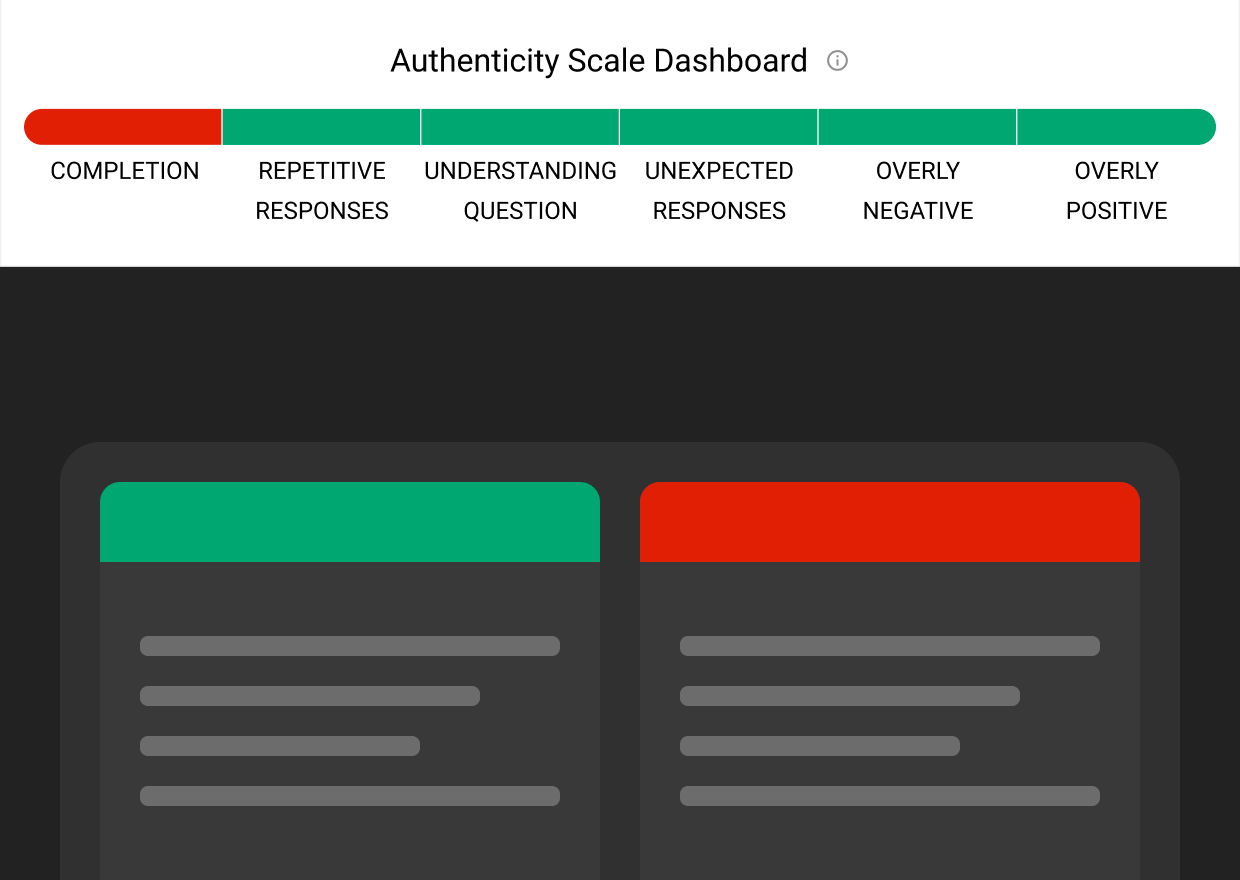
Authenticity Check
One of the key ways we differ from other assessments is our ability to verify that respondents are telling the truth. TGS detects 99% of inauthentic responses, whether due to inattention or a deliberate attempt to game the assessment. The assessment highlights inauthenticity after a forensic review of consistency, randomness, and deception. If there is any concern about authenticity, the participant is asked to retake the assessment.
Leadership Insights
The TGS Assessment provides several critical and practical insights to help improve leadership effectiveness and performance and reduce risk and toxicity.
Performance Personalities
The reason leaders 'get stuff done'
The performance personalities of The Influencer (Borderline), The Strategist (Machiavellianism), The Promoter (Narcissism), The Driver (Psychopathy), and The Disruptor (Sociopathy) are crucial for effective leadership. They provide traits that enable decisive action, strategic ruthlessness, charismatic confidence, and intense motivation. The GreyScale Assessment identifies these personalities as dynamic (effective/green), diluted (ineffective/amber), or dangerous (risky and toxic/red).
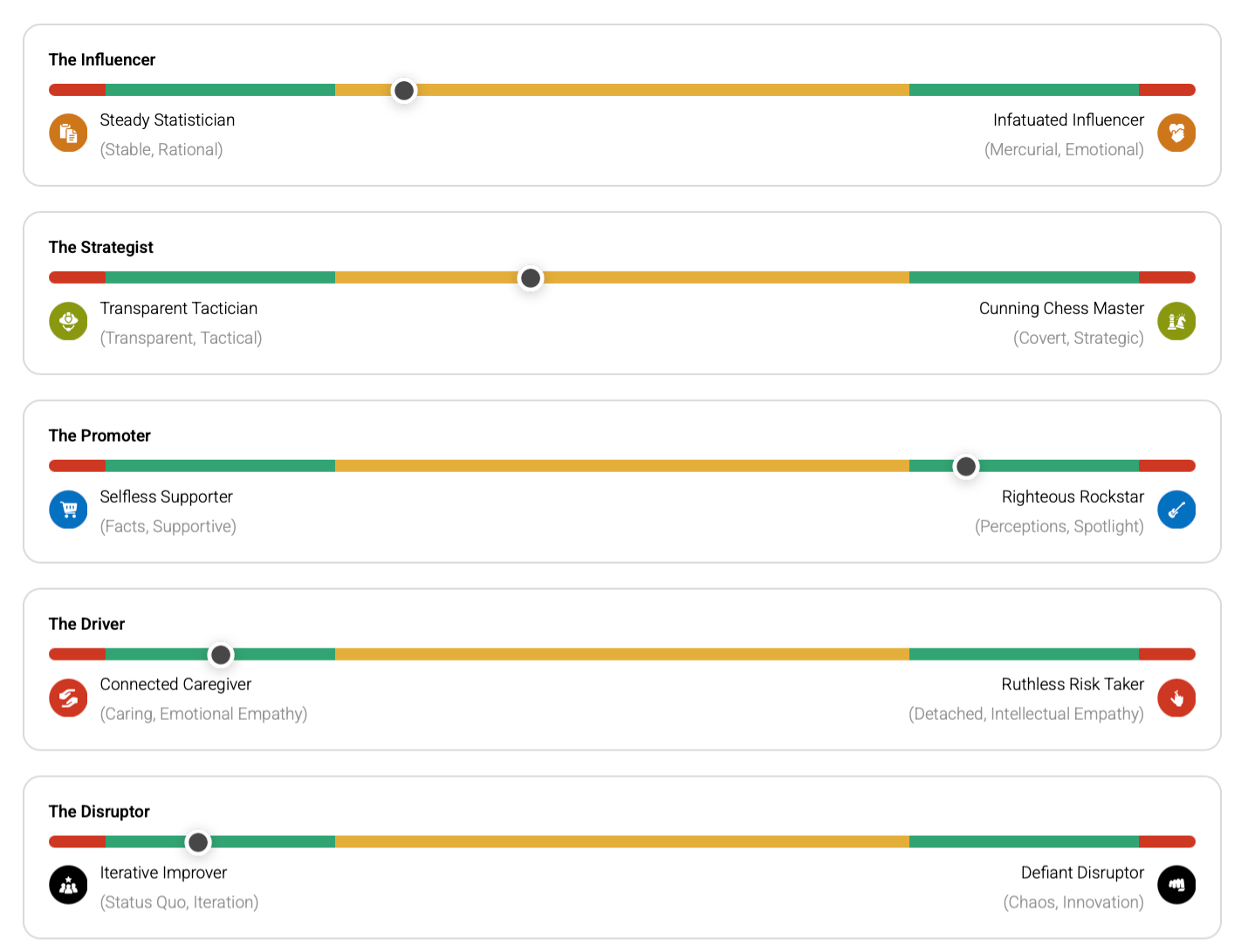
Containment Factors
The 11 factors influencing leadership effectiveness
11 containment factors grouped into Defensiveness, Morality, Relationship Attachment, and Core Motivations, impact leadership effectiveness and performance. These factors mediate or amplify a leader's behavior, making them more or less effective or risky and toxic in certain situations. TGS provides insight into how these factors interact with a leader's personality to shape their impact on people and business performance.
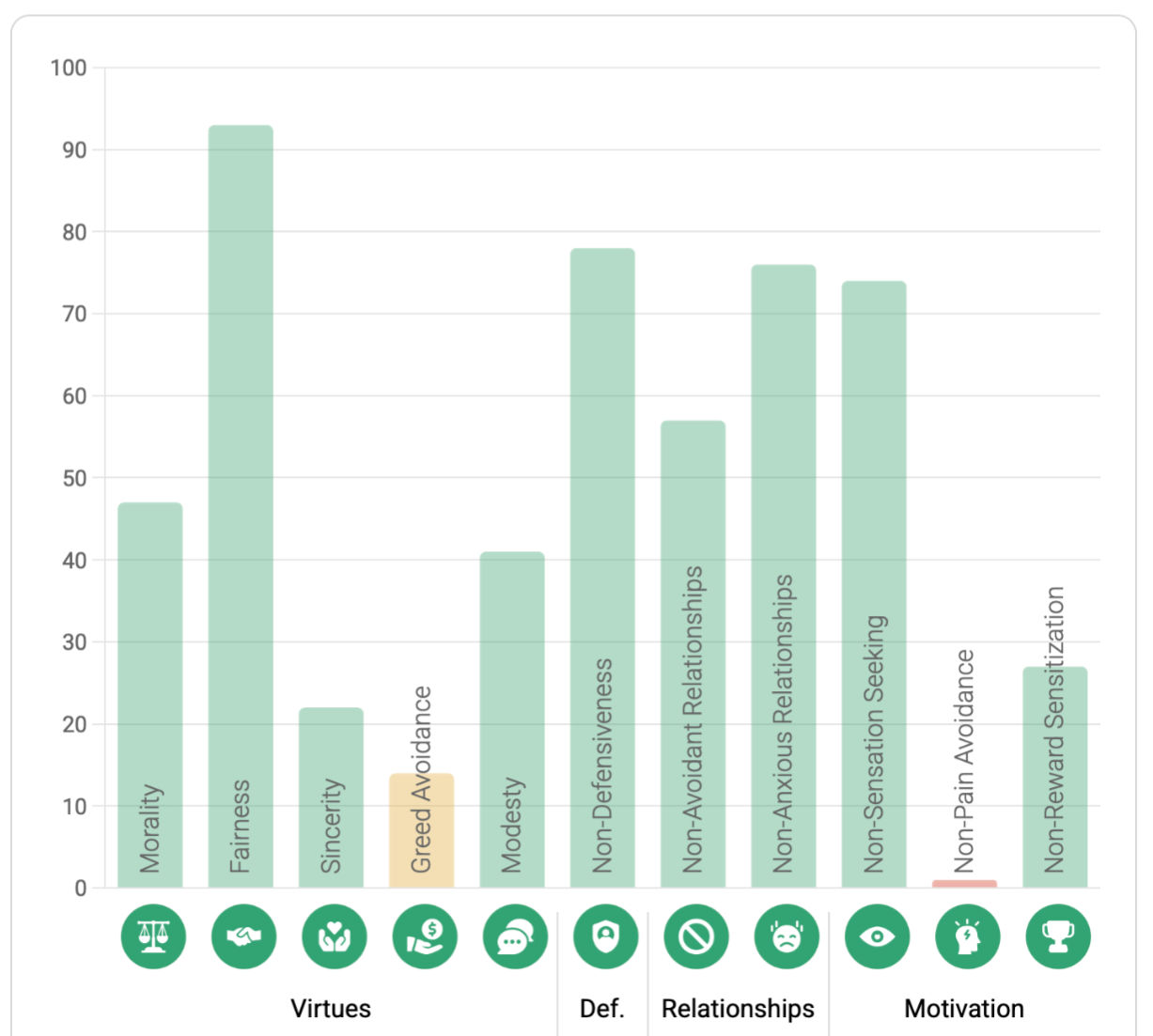
Leadership Assets and Achilles Heels
Winning & Risky Combinations
As a two-tailed assessment, TGS evaluates combinations of performance personalities and containment factors, ranking them by effectiveness. Leaders gain insights into leveraging winning combinations and mitigating losing ones in order to increase their effectiveness and drive success.
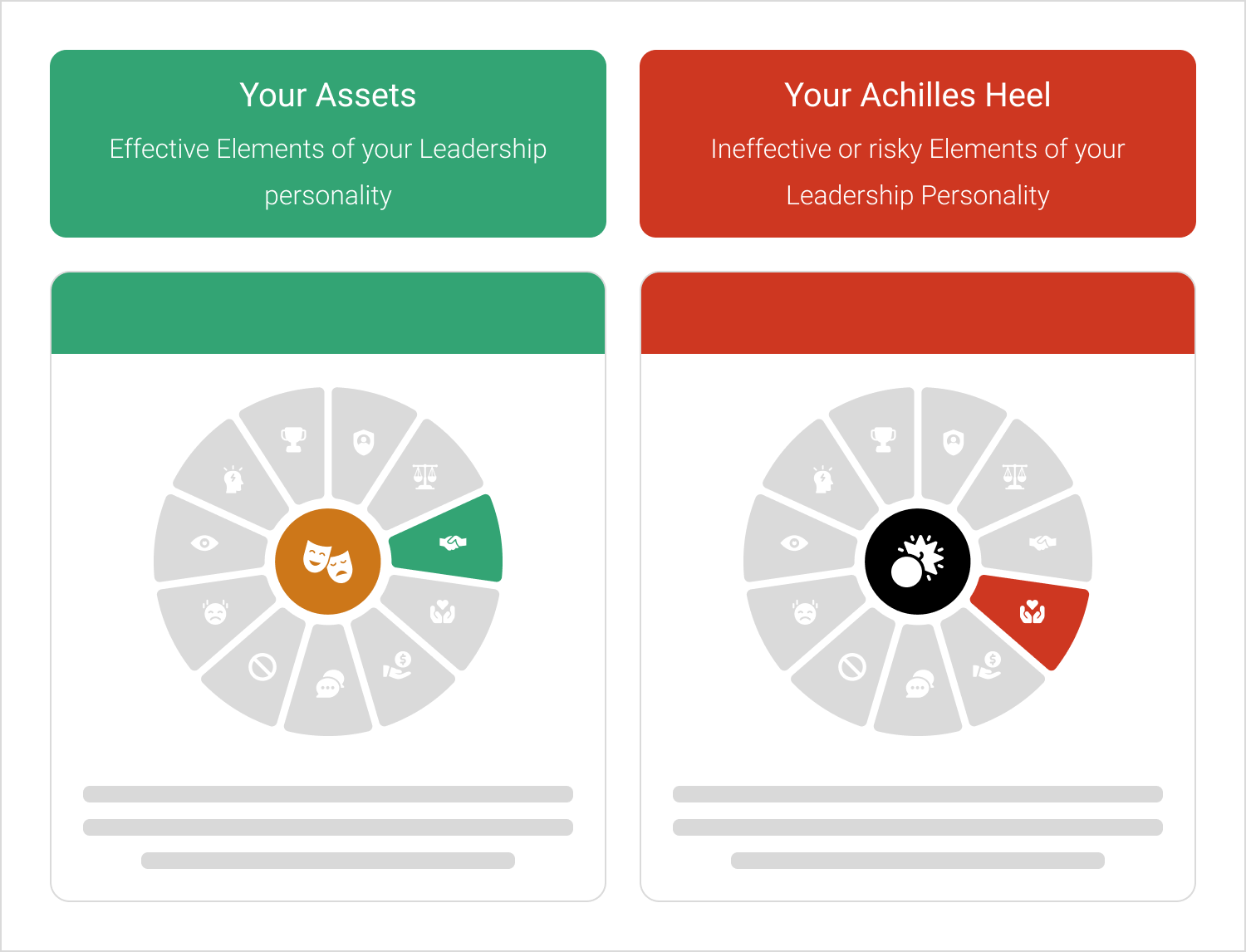
Psychosocial Risk (ASCA)
Psychosocial risk factors impacting people and performance
Four forces—anxiety, stimulation, conformity, and ambiguity (ASCA)—impair team effectiveness. Effective leaders manage their ASCA factors and mitigate their impact on others to foster efficient problem-solving and prevent the workplace toxicity that erodes success.

ASCA's Impact on People
Workplace toxicity creates stress and distress
If people feel stressed or distressed their personal performance is impacted . Effective leaders mitigate the four disruptive forces—anxiety, stimulation, conformity, and ambiguity (ASCA)—to reduce any workplace toxicity that is creating stress or distress.
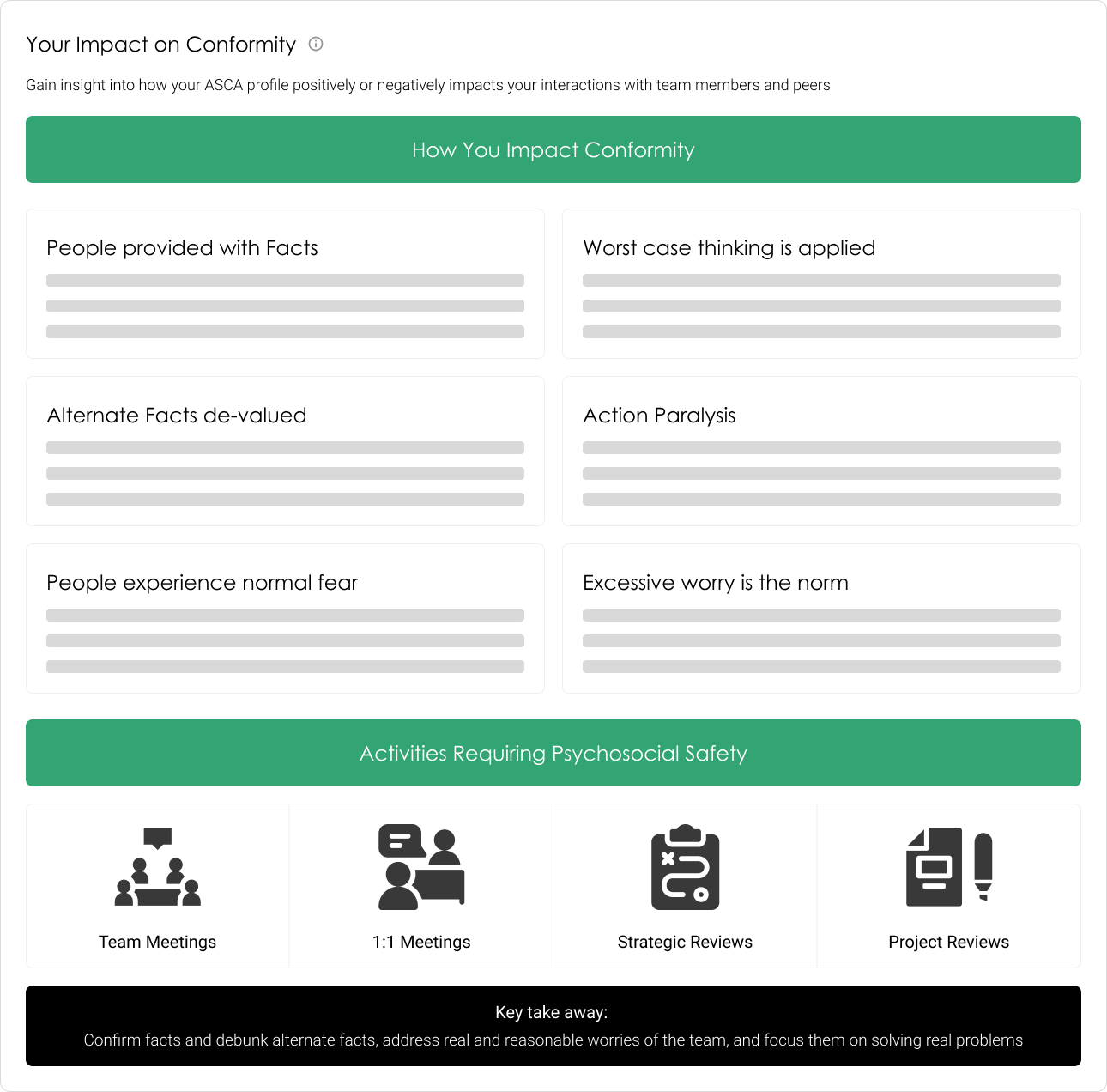
ASCA's Impact on Performance
Problem-solving disruption impacts success
Businesses solve problems to fulfil their purpose. Effective leaders mitigate the four disruptive forces—anxiety, stimulation, conformity, and ambiguity (ASCA)—to create optimal environments for efficient problem-solving performance and driving success.
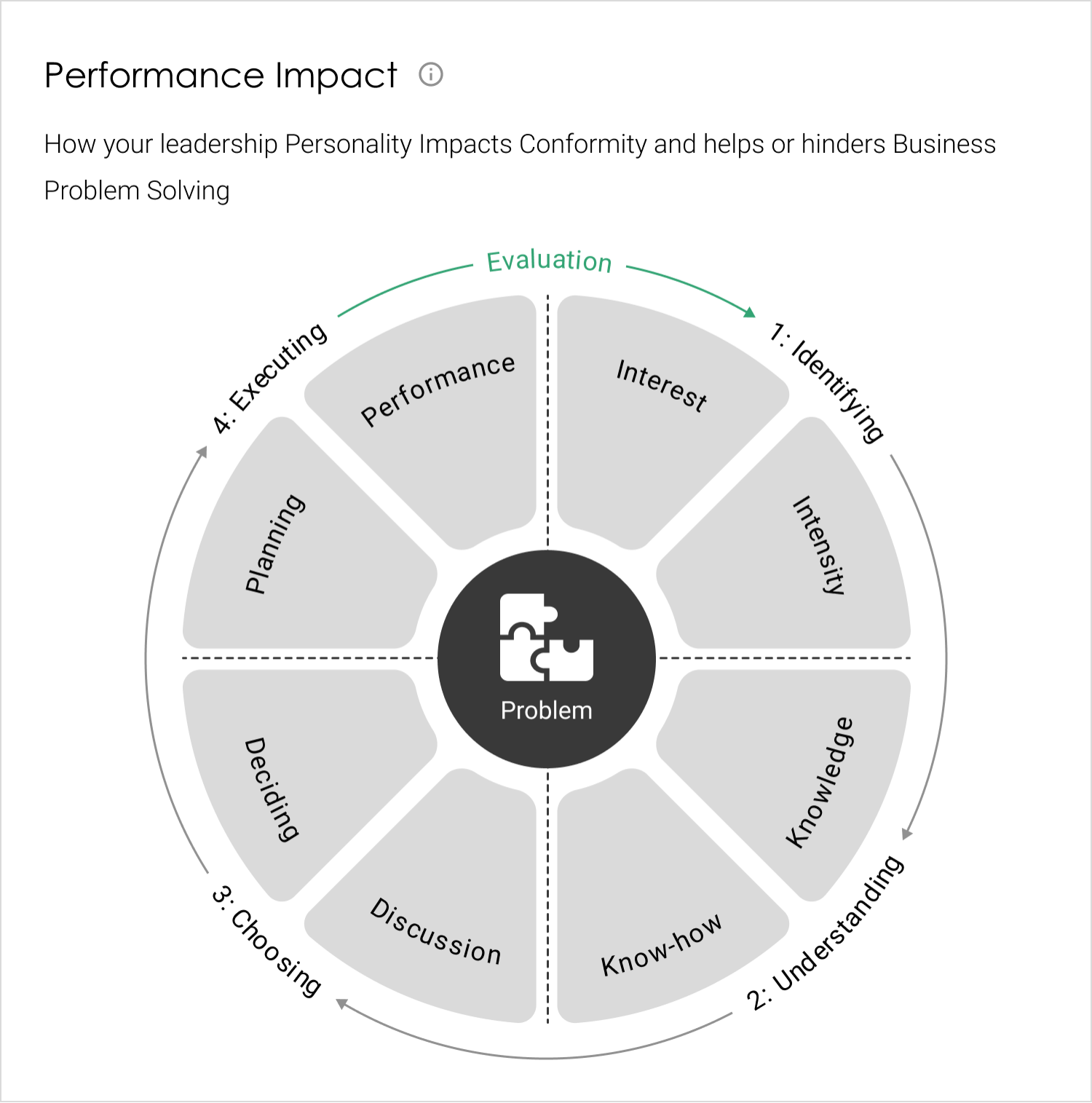
See a Sample TGS Assessment Report
Curious about what your leadership assessment report will look like? See a Sample Report and discover how The GreyScale provides in-depth insights into your leadership style.
Inclusions and Pricing

USD$115
1 x The GreyScale Assessment
Access to a dynamic dashboard and downloadable PDF with your results, insights and recommendations.
TGS Solutions to Meet Your Unique Needs
TGS provides leadership performance evaluation solutions for businesses, recruitment firms, and individual leaders. Our solutions are built around The TGS Leadership Assessment.
It delivers powerful, actionable insights to increase leadership effectiveness; identify and mitigate leadership toxicity and risk; and improve leadership candidate suitability, along with an in-depth analysis of distributed leadership.
